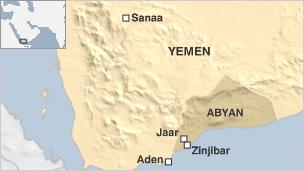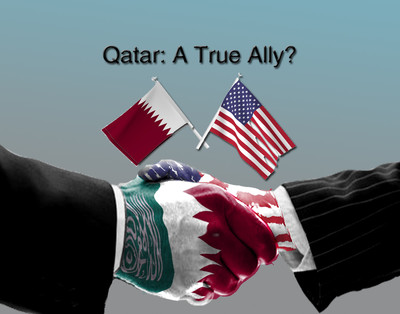
Friends, a side bar, the first part of the "South Front" video is about the Ukraine. The Ukrainians have deployed 277 tanks, friends, that is a large number of tanks. To put that in perspective we used about 1,100 tanks in Iraq.
https://www.youtube.com/watch?v=VeweBMSjKkY

On the outside, Israel is
all smiles and full of praise for way the coordination with Moscow is working
for averting clashes between its air force and Russian warplanes over Syria.
This goodwill was conspicuous in the compliments Prime Minister Netanyahu and
President Putin traded when they met on the sidelines of the Paris climate
summit Monday, Nov. 30.
But the first disquieting sign appeared Tuesday, Dec. 1. Senior Russian and Israeli officers were due to meet in Tel Aviv to discuss strengthening the cooperation between the two army commands. But no word from Moscow or Jerusalem indicated whether the meeting had taken place.
But the first disquieting sign appeared Tuesday, Dec. 1. Senior Russian and Israeli officers were due to meet in Tel Aviv to discuss strengthening the cooperation between the two army commands. But no word from Moscow or Jerusalem indicated whether the meeting had taken place.
The show of optimism is
giving way to an uneasy sensation in the offices of the prime minister, Defense
Minister Moshe Ya’alon and the IDF Chief of Staff Lt. Gen. Gady Eisenkott. They
suspect an ulterior motive behind Russia’s military movements in southern
Syria, especially its air strikes against Syrian rebels, just across from
Israel’s Golan border.
In particular, Moscow may
be giving Hizbollah and Iran an umbrella for achieving their longstanding
design to displace the Syrian rebels with Revolutionary Guards and Hizbollah
forces and deploy them along Israel’s Golan border.

This suspicion gained ground when Tuesday, Dec. 1, the day after the Putin-Netanyahu encounter, the combined Iranian-Syrian-Hizbollah units expanded their thrust from the southern Syrian town of Deraa to the Golan town of Quneitra, within sight of Israel’s defense positions.
All that day, heavy battles raged over the rebel-held line of hills running from a point just south of Quneitra to the Israeli-Syrian-Jordanian border junction. The combined force was supported by Russian air strikes and heavy tanks and artillery, seen for the first time in this war arena.
When the fighting resumed
Wednesday, the IDF placed its Golan units on high alert and an extra-vigilant
eye was trained on this battle.
The Iranian-Syrian-Hizbollah
side is gaining a distinct advantage from the deep feud dividing rebel ranks.
The Islamic State and the al-Qaeda-affiliated Syrian Nusra Front forces are
tearing into each other with suicide bombers and explosive cars. Tuesday, an
ISIS-rigged car bomb blew up at Nusra headquarters near Quneitra.
But this also means that
an Islamic State force has come dangerously close to the Israeli border.
However, even more perils
are in store if Bashar Assad’s army backed by Iran, Hizbollah and Russia
manages to capture the hills opposite the Golan:
1. Two years of
unrelenting Israeli military and intelligence efforts to keep Hizbollah and
Iranian forces away from its Golan border will have gone to naught.
2. Hizbollah will open the door for Iranian Revolutionary Guards officers to set up a command center right up to the Israeli border.
2. Hizbollah will open the door for Iranian Revolutionary Guards officers to set up a command center right up to the Israeli border.
3. Israel’s
steadfast policy and military action to prevent advanced Iranian weapons
reaching Hizbollah in Lebanon via Syria will be superseded. On the Golan, Hizbollah
will have gained direct access to any weapons it wants directly from Syria and
be able to deploy them at far shorter distances from Israeli targets than from
their firing positions in Lebanon.
4. Putin attaches
extreme importance to recovering southern Syria from the rebel forces backed by
the US and Israel, because he regards the threat to the Assad regime as great
from the south as it is from the north or the center.
5. Israel faces a grave dilemma
between keeping up its “honeymoon” with Moscow by giving way on its essential
security interests, or taking the bull by the horns and keeping the enemy
at bay, whatever the cost to the understanding reached with Putin.
Officials in Jerusalem
point out that the threat advancing on the Golan peaked just hours after
the Russian leader met the prime minister in Paris. Putin is conducting a
hands-on policy in Syria and keeps close track of the slightest occurrence on
the battlefield. He must have been aware
of the state of play with regard to the Golan when he met Netanyahu, but
nonetheless kept it out of their conversation.
French Interior Minister Bernard Cazeneuve, above, announced Wednesday that three mosques, two in suburbs of Paris and one in
Lyon, have been closed by an order from his ministry under the emergency
regulations France enacted after the terrorist attacks on the capital. Weapons
were found in one of the mosques and an illegal religious school was run there
clandestinely. Cazeneuve called the three mosques "pseudo-religious
organizations."

Al Qaeda captured the cities of Jaar and Zinjibar
in southern Yemen on Wednesday morning. The terrorist organization previously
seized the two cities, located about 50 kilometers from the port of Aden, in
2011 but was driven out by Yemen's military a year later.

Lebanese defense sources said Tuesday that two
people were wounded from the explosion of two bombs as a bulldozer carried out
road repair work in the southern part of the country. According to the sources,
the bombs, which were connected to an "Israeli listening
device," exploded when the bulldozer ran into them.
The incident took place between the towns of Khiyam and Bourj al-Mulouk. The two towns
are strongholds of Hizbollah forces in southern Lebanon.
A day-long, wide-scale exercise by the IDF's
Southern Command in the western Negev and the Eilat area ended on Wednesday evening. During the
exercise by the various brigades and divisions, the IDF general staff conducted
a surprise inspection that was mainly intended to gouge the command's
operational readiness. The exercise included simulations of infiltrations by
terrorists into Israel by sea and by land, the seizing of an Israeli settlement
by terrorists, and mortar barrages. In addition, the forces simulated
entering Gaza and responding to the possibility of soldiers being taken
prisoner. In another part of the drill, senior officers handled scenarios
involving attacks and defense against ISIS forces. The surprise exercise involved a combination of
infantry, engineering, artillery, and armored corps troops, backed by the air
force, intelligence divisions and the navy. Civillian police and rescue
forces, firefighters and security networks from settlements and cities in the
region also participated in the exercise.
Internal Security Minister Gilad Erdan, who also
serves as minister for strategic affairs, has appointed Ret. Brig. Gen. Sima Vaknin-Gil as
director-general of the Strategic Affairs Ministry. Vaknin-Gil, 50, has
a bachelor's degree in Middle Eastern studies and a masters degree in national
security studies, both with distinction. She served 30 years in the Israeli Air
Force's intelligence division and was the IDF's chief military censor for the
last 10 years. Her appointment was approved by the government's committee for
appointments of senior officials.

A 6th BCE centur seal (bulla), half an inch
long, just found in excavations near Temple Mount in Jerusalem, bears the name
of Hezekiah – none other
than the biblical era king who reigned from 727 to 698 BC. "This is
the first time that a seal impression of an Israelite or Judean king has ever
come to light in a scientific archaeological excavation," stated the leader
of the dig, Eilat Mazar of the Hebrew University of Jerusalem. The oval
impression on the clay seal, which was most likely set in a ring, states in
ancient Hebrew script: "Belonging to Hezekiah [son of] Ahaz king of
Judah." It also shows Assyrian symbols, indicating that it was created
late in the king’s life when he fell under Assyrian influence. Hezekiah’s
celebrated engineering feat, a water channel linking the Silwan springs to
the city of Jerusalem in case of siege, is still in place today.

In a prisoner exchange arranged by Qatar, the
Nusra Front terror organization handed over 16 captive Lebanese soldiers to
representatives of the Red Cross on Tuesday in exchange for $25 million, provided by Qatar,
and the release of 13 members of the organization in Lebanese jails. The 13 members included Saja
al-Dulaimi, ex-wife of the former Al Qaeda leader Abu Bakr al-Baghdadi who is
now head of ISIS. The soldiers were taken prisoner about 18 months ago
in the Lebanese border town of Arsal. The prisoner release demonstrated Qatar's
deep involvement in the Syrian conflict and its connections to the Nusra Front
and other organizations linked to Al Qaeda.


No comments:
Post a Comment